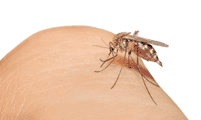
Actionable insights from Brandology®
Experts in marketing strategy, strategic planning, trend tracking,
positioning, and new products
positioning, and new products
 Actionable insights from Brandology®
Experts in marketing strategy, strategic planning, trend tracking,
positioning, and new products |
 |
 |
 |
 |





|
|
|||||||||
 |
Click here to learn more about Brandology |  |
| Copyright © 2010, Brandology and InformAction are registered trademarks of Brandology, Inc. |